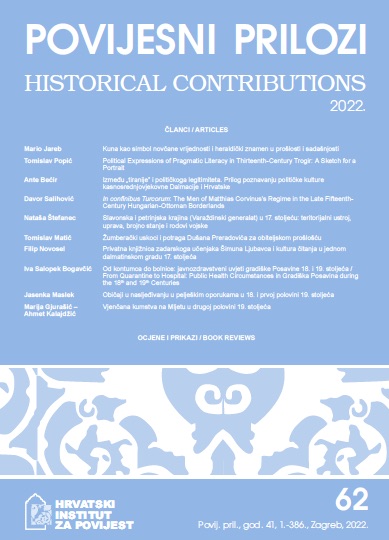Pragmatic Literacy in Thirteenth Century Trogir: A Sketch for a Portrait
DOI:
https://doi.org/10.22586/pp.v41i62.20100Keywords:
pragmatic literacy, power relations, medieval communes, Trogir, Middle AgesAbstract
The author analyzes the crucial factors in the development of pragmatic literacy in thirteenth century Trogir, which is associated with significant transformations of the city’s political and social order, primarily the increasing power of communal government at the expanse of the bishop’s, which resulted in the growing need to (re)define the position of communal institutions in relation to exterior (king, Croatian nobility) and interior (bishop, contending factions) centers of power and other members of local community. Greater reliance of local political elite on the written word as a means to shape and maintain a desirable social order was becoming increasingly pronounced in this context. Hence, the paper regards the development of pragmatic literacy in thirteenth century Trogir as one of the major pillars in configuration of new government institutions and power relations, which is then associated with the creation of the first city statute, professionalization of the chancery and transition from charters to notarial, court, council and other communal registers.
Downloads
Published
How to Cite
Issue
Section
License
Copyright (c) 2022 Authors and journal

This work is licensed under a Creative Commons Attribution-NonCommercial 4.0 International License.







